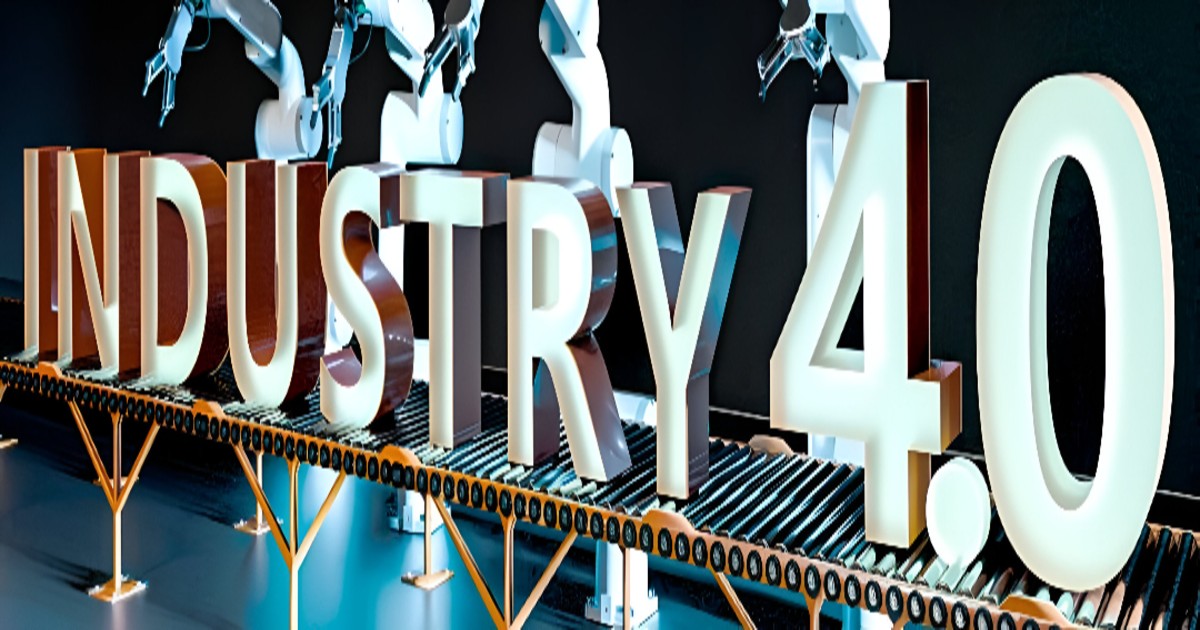Industry 4.0 is a concept that originated in Germany, marking the beginning of the fourth industrial revolution. Unlike its predecessors, this revolution is characterized by the fusion of the physical, biological, and digital worlds, fundamentally altering industries and societies. The integration of artificial intelligence (AI), big data, Autonomous Machines, and the Internet of Things (IoT) into manufacturing processes is at the core of Industry 4.0.
This revolution is not merely an extension of the third industrial revolution, which focused on digitization and automation. Instead, Industry 4.0 brings an unprecedented shift in production speed and methodology, redefining the way businesses operate. Machines are evolving to function with minimal human intervention, interacting autonomously to optimize production. As a result, companies are racing to adopt these advancements to maintain a competitive edge and meet growing customer demands.

One of the most striking aspects of Industry 4.0 is the speed at which transformation is occurring. Consider the fashion industry: in the past, trends emerging from the fashion capitals of Paris and Milan took years to reach other parts of the world. Today, digital platforms enable instantaneous global access to fashion trends through online magazines, live-streamed runway shows, and e-commerce platforms with worldwide shipping. This acceleration of production and distribution is a testament to the power of Industry 4.0.
A common concern surrounding Industry 4.0 is its impact on employment. The integration of AI and automation into Manufacturing Processes will inevitably displace millions of jobs, particularly those requiring repetitive tasks. However, while job displacement is an immediate challenge, Industry 4.0 also presents opportunities for the workforce.
As technology advances, there will be an increasing demand for skilled professionals capable of managing and maintaining these sophisticated systems. Workers will need to upskill and adapt to the changing market landscape. Governments and organizations must play a crucial role in facilitating this transition by implementing reskilling programs and educational reforms that align with Industry 4.0 demands. In the long run, this transformation could lead to higher wages, improved working conditions, and increased innovation.
Despite its potential benefits, Industry 4.0 poses a significant risk of exacerbating economic inequalities. Large enterprises with the financial capacity to invest in advanced machinery will gain a competitive advantage, widening the gap between industry leaders and smaller businesses. This imbalance could create monopolies, limiting opportunities for smaller enterprises and deepening economic disparities.
Furthermore, millions of workers with outdated skills may struggle to find employment, leading to increased economic instability. Without strategic policies and proactive governance, Industry 4.0 could disproportionately benefit corporations while leaving a significant portion of the workforce behind.
Leadership will be a decisive factor in determining whether Industry 4.0 leads to prosperity or economic division. Effective leadership must prioritize sustainable economic development, workforce adaptation, and inclusive growth. Policymakers, business leaders, and educational institutions must collaborate to create strategies that mitigate job displacement and promote equitable access to emerging opportunities.
By investing in education, training, and innovation, governments can equip their citizens with the skills needed for Industry 4.0, ensuring a smoother transition. Additionally, ethical leadership should focus on developing a human-centric economy rather than a purely profit-driven one.
Industry 4.0 offers a unique opportunity to build a more connected and sustainable world. By embracing automation, AI, and data-driven decision-making, industries can optimize resources, reduce waste, and enhance productivity. Additionally, digital connectivity can bridge gaps between nations, fostering international collaboration and economic inclusivity.
However, to fully realize these benefits, stakeholders must ensure that Industry 4.0 does not leave marginalized groups behind. Inclusive policies, ethical AI deployment, and responsible automation practices must be at the forefront of this revolution.
Industry 4.0 is reshaping the global industrial landscape, blurring the lines between the physical, digital, and biological worlds. While it brings unparalleled advancements in manufacturing and efficiency, it also presents challenges such as job displacement and economic disparities. The key to harnessing the potential of this revolution lies in proactive leadership, policy reforms, and a commitment to building a human-centric economy.
By embracing change responsibly and fostering inclusive growth, we can ensure that Industry 4.0 becomes a force for progress, innovation, and sustainability rather than a driver of inequality. The future of Industry 4.0 is not just about technological advancements—it is about creating an ecosystem where people and machines coexist for a better tomorrow.
© 2025 RA Global Tech Solutions
Site design and developed by Rajkar Global